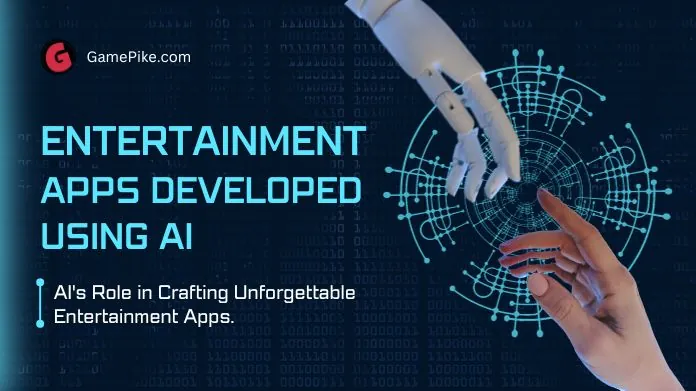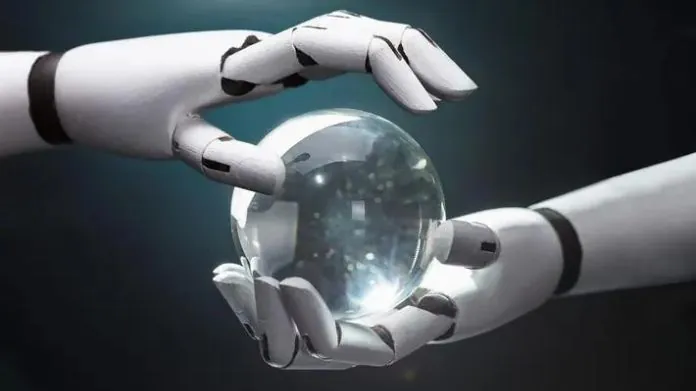As we progress with technological advances, the entertainment apps industry is seeing an increased complexity and diversity surrounding many areas like music, gaming, film, television, and sports.
The boundaries between these sectors are blurring. However, they all share a common goal: to offer captivating content that can produce monetary value.
So, what determines whether entertainment products are profitable?
Distribution channels, advertising effectiveness, sponsorships, and consumer demand affect profitability in the entertainment sector.
AI can address most of these areas simultaneously, so the entertainment industry’s interest in AI is soaring.
How is AI Used in Entertainment Apps Development?
 Currently, AI is most commonly used for IT and business process automation, security, threat detection, marketing, sales, business intelligence, and business analytics, according to the IBM Global AI Adoption Index (2022). This covers various companies from several industries worldwide.
Currently, AI is most commonly used for IT and business process automation, security, threat detection, marketing, sales, business intelligence, and business analytics, according to the IBM Global AI Adoption Index (2022). This covers various companies from several industries worldwide.
This trend is not limited to the media and entertainment apps. Companies often use AI-based tools to speed up digital acceleration by developing recommendation tools and speeding up content creation.
They also create custom chatbots for customer relationship management and analyze audience behavior, particularly on social media channels.
The entertainment industry is seeing AI help develop online gaming and entertainment apps for people to enjoy immediately.
For example, you can play your favorite casino games with an immediate Borgata app download onto your smart device, giving you access from anywhere with an internet connection.
AI Recommendation Systems
AI has been introduced extensively into platforms like YouTube, Amazon Prime, and Netflix to deliver a more personalized experience for the user in the type of recommendations they receive.
Through analysis of user preference, user behavior, and browsing history, AI algorithms can offer TV shows, books, music, and other content that follows a similar scope to previous items that users have enjoyed.
Users consent to submit their data to recommendation systems, which analyze their profiles, display their histories, and identify similar behavior patterns.
By learning from historical data, these systems can predict user preferences with the help of machine learning algorithms.
Based on feedback and interactions with users, they generate personalized recommendations that are continually updated and improved.
The recommendations become more accurate and relevant with time through this feedback loop. For example, Netflix provides customized recommendations to its subscribers using artificial intelligence algorithms.
This level of AI integration is helping it become the world’s leading streaming platform.
Future Predictions
 Artificial Intelligence is here to stay, revolutionizing how we create, produce, and consume content in all areas of the entertainment industry.
Artificial Intelligence is here to stay, revolutionizing how we create, produce, and consume content in all areas of the entertainment industry.
Everything from gaming, film, creating, writing, music, and entertainment app development—AI tools are enhancing how our creative process works.
This ultimately pushes the boundaries of what can be done and gives content creators the room to explore new artistic environments at a speed faster than ever before.
Artificial Intelligence uses algorithms that help generate ideas and inspire the creator. AI also excels in automating repetitive processes and tasks while offering suggestions that can enhance productivity, allowing artists to focus on the more creative areas of their work.
Along with this, AI-powered recommendation systems used within entertainment apps help to improve the personalized feeling overall by the user, allowing them to discover new movies, music, and books that have a similar preference to things they have already liked.
The analytical abilities of vast amounts of AI data and audience preference predictions empower content creators to deliver something more tailored and captivating to their audiences, making the entertainment experiences more engaging.
The future looks bright for AI due to its immense power and potential to revolutionize an entire industry, making it better for audience enjoyment and engagement.
AI Controversies
There are numerous ethical controversies associated with artificial intelligence in entertainment.
One of the main concerns is the potential impact that AI has on the job market, especially for those who work as creative professionals.
As the algorithms within AI continue to grow and adapt, they are becoming increasingly proficient at generating art, music, and even screenplays.
This has resulted in questions regarding the future of human creativity and the potential displacement of performers and artists.
The ethical implications of AI tools, such as deep fake technology, have allowed the manipulation of audio and video to create fabricated but very realistic content.
This has started to raise concerns about privacy infringements, misinformation, and the depletion of trust within the media
Final Thoughts
Despite those ethical and financial considerations affecting human creators, the fact remains that there is no replacement for the original human imagination.
AI can reproduce and recreate existing ideas, but people can develop new, original ideas. AI integration presents various entertainment possibilities and several contentious issues that must be carefully considered and regulated.
AI-generated content must be responsibly used and protected in the coming years to address privacy concerns, biases, and accountability.
When entertainment can leverage artificial intelligence for innovation and creativity while upholding ethical standards, the industry can deliver compelling and immersive experiences for audiences worldwide.



